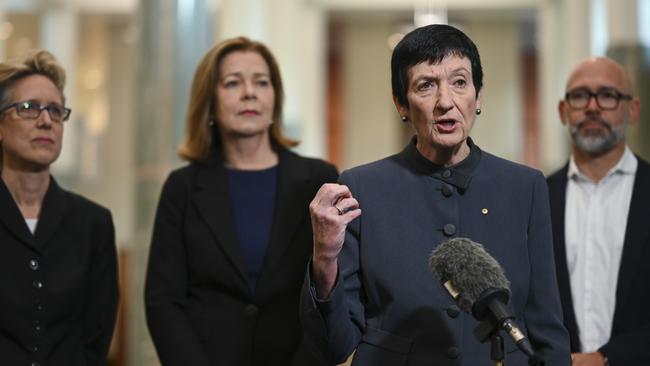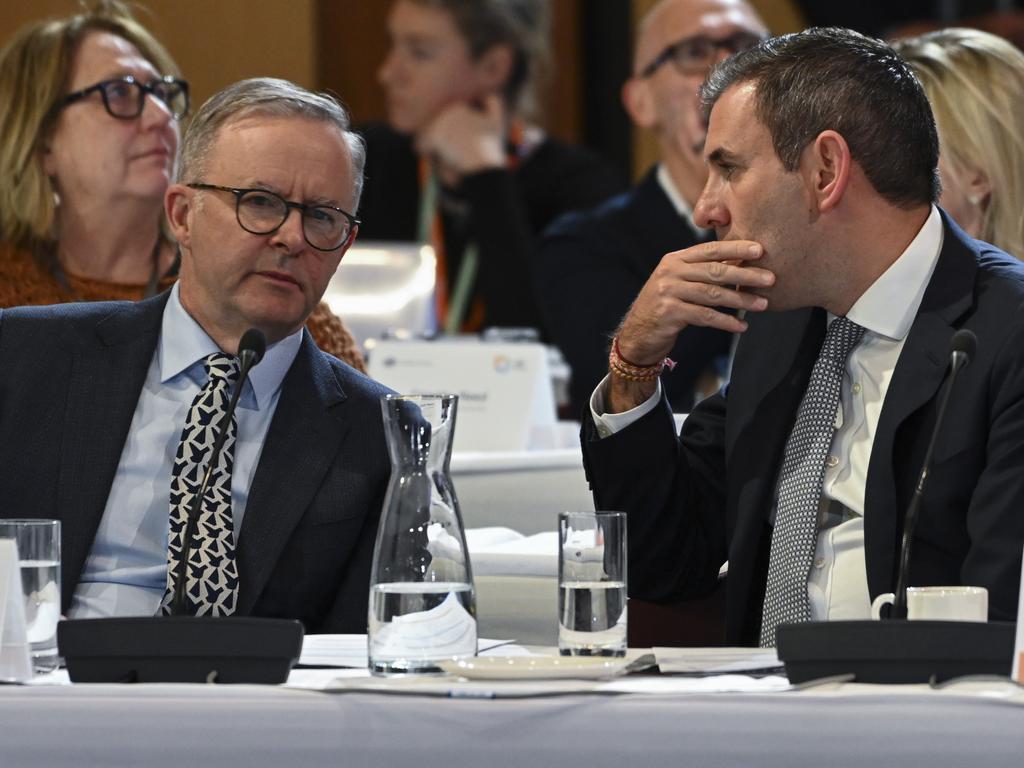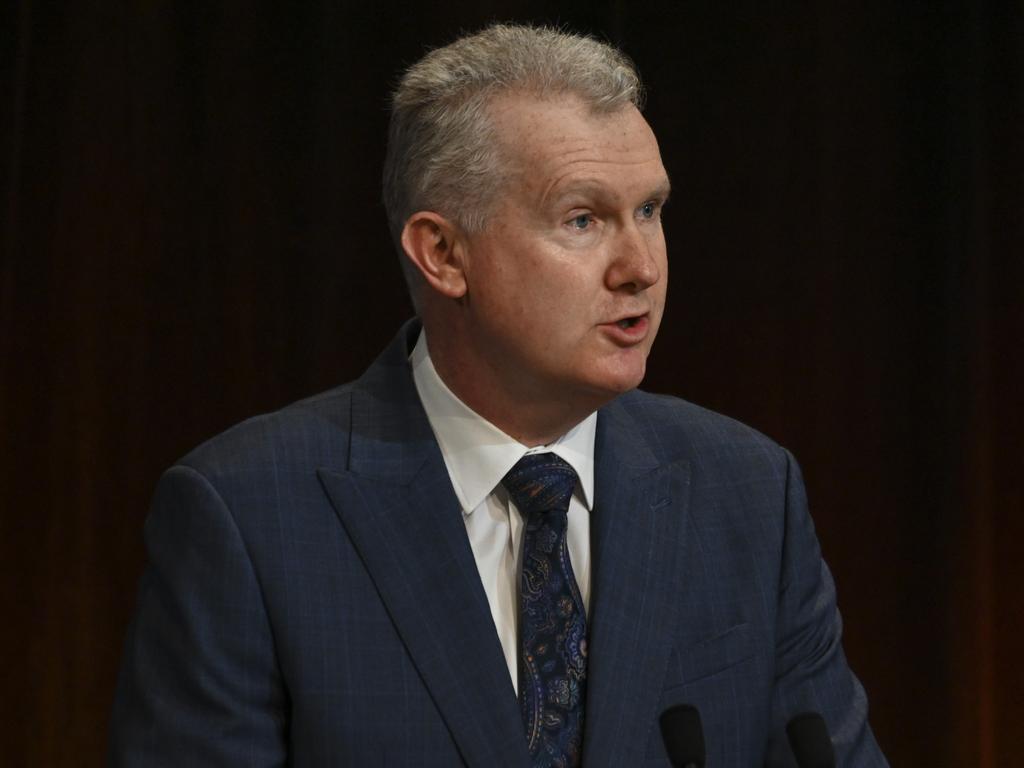Business a boiled frog on industrial relations

The joint statement from the Business Council and the ACTU – issued on the eve of the summit – gave Industrial Relations Minister Tony Burke all the imprimatur he needed to announce that there was sufficient agreement for the government to move ahead by legislating multi-employer agreements across the country.
Yet the only agreement reached on multi-employer bargain so far has been with the small business lobby group, whose unwitting chief was already walking back from it at the summit.
While the BCA does not support industry-wide bargaining, the joint statement was weak enough for the government to drive a truck though on pattern bargaining.
“Both the BCA and the ACTU believe the bargaining system under the Fair Work Act needs to be reformed so it is simpler, fairer, and more accessible. Whilst the BCA acknowledges that the ACTU believes there is the need for new multi-employer bargaining options, the BCA is not convinced this solution is the answer to the current problems,” it reads.
One well-placed source in Canberra told The Weekend Australian that senior members of the BCA had not signed off on the industrial relations position in the joint statement. They were privately deeply concerned.
Make no mistake, this multi-employer bargaining is pattern bargaining.
Industry wide or pattern bargaining means wages and conditions agreed with one company can then be forced across a sector regardless of the various different business models within. It is the antithesis of enterprise bargaining.
The proposed multi-employer bargaining will start with smaller businesses but Burke has not ruled out extending the reach. The ACTU’s Sally McManus has already called for it to cover the female worker dominated care sector.
But there is no clarity on where the line will be drawn – whether multi-employer bargaining would creep to cover miners, big retail, the ports or any other big business sector.
The BCA clearly believe productivity gains from its work with the ACTU can be transformative for business. At the summit, BCA chairman Tim Reed made strong comments against industry wide bargaining. Other big business voices in the room were silent.
Yet this cannot sit comfortably with attendee Alan Joyce. More than anyone, the Qantas chief executive would understand the pain of strikes and lockouts.
Last week Wesfarmers chief executive Rob Scott, also at the summit, said industry-wide bargaining would be a material step backwards that would likely lead to much worse outcomes for workers.
There was no mention of industry wide bargaining from Labor during the campaign.
Yet as the dust settles an orchestrated campaign from the union is emerging, culminating in a carefully-crafted agenda for the summit.
On enterprise bargaining only the ACTU, the BCA and Council of Small Business Organisations Australia had the podium. The Australian Industry Group and Australian Chamber of Commerce and Industry – representing mainstream employers – were overlooked. The AIG’s Innes Willox has not held back in his public criticism of developments.
Staggeringly, the Productivity Commission was not invited to the summit. Instead on the academic front, the podium was given to RMIT researcher Anthony Forsyth.
Tellingly, he spoke to the inadequacy of the current bargaining framework in a general sense, not confining it to a particular sector.
In his June article in The Conversation, Professor Forsyth argues that all unions should have sector wide bargaining and multi-enterprise bargaining with the full rights currently confined to single enterprise agreements, and specifically the right to protected industrial action and the obligations to bargain in good faith.
“To lift wages, workers need the boost to bargaining power that comes from being able to negotiate – and strike – across entire industries.”
This is significant.
The reason is that multi-enterprise agreements are readily available under the Fair Work Act today but a critical limitation is that unions cannot take protected action under them.
The entire debate is shrouded by a lack of detail around the real significance of the change.
The agenda is to make protected industrial action and good faith bargaining extend to multi-enterprise agreements.
In 2020, the Maritime Union of Australia tried to arrange common expiry dates for their agreements they could have bargaining and industrial action at same time to force concessions. The Covid-19 pandemic upset those plans. The Transport Workers’ Union was working on the same thing.
BCA members are not stevedores. In research and advocacy ahead of the summit, it is clear that Forsyth and unions believe that more pressure should be applied by engaging in industrial actions across supply chains. They want to secure better industry agreements and higher wage outcomes, from supermarkets to their suppliers and even the growers.
Unions are taking full advantage of the political landscape that has been building their way for months.
There was disunity among business lobby groups after both the AIG and ACCI baulked at a deal the BCA and the ACTU tried to secure around changes to the better off overall test.
Labor refused to support the Morrison government’s proposed changes to the BOOT last year, keeping powder dry for a bigger IR shift in government.
Scott Morrison’s pitch for the tradie vote set him against big business, an attitude truly palpable when he addressed the BCA dinner in 2021.
How different was this year’s BCA dinner on the eve of the jobs summit. And it made logistical sense for Anthony Albanese to generously offer his plane to transport the BCA and its leader members to the summit.
The pot was simmering. By then, the ACTU had masterfully picked off COSBOA.
There is a deep sense of injustice on the union side at wage inequality. Perhaps boards – and shareholders, including industry super funds who did so well from company profits in recent years – should have thought about this earlier.
Liberal leader Peter Dutton made a wise choice to decline an invitation to the summit.
Labor and the unions are getting to work on it all starting Monday. You betcha they are.






Did this just happen? On September 1, big business opened the door to pattern bargaining in Australia and the risk of crippling strike action as union muscle bulks up.